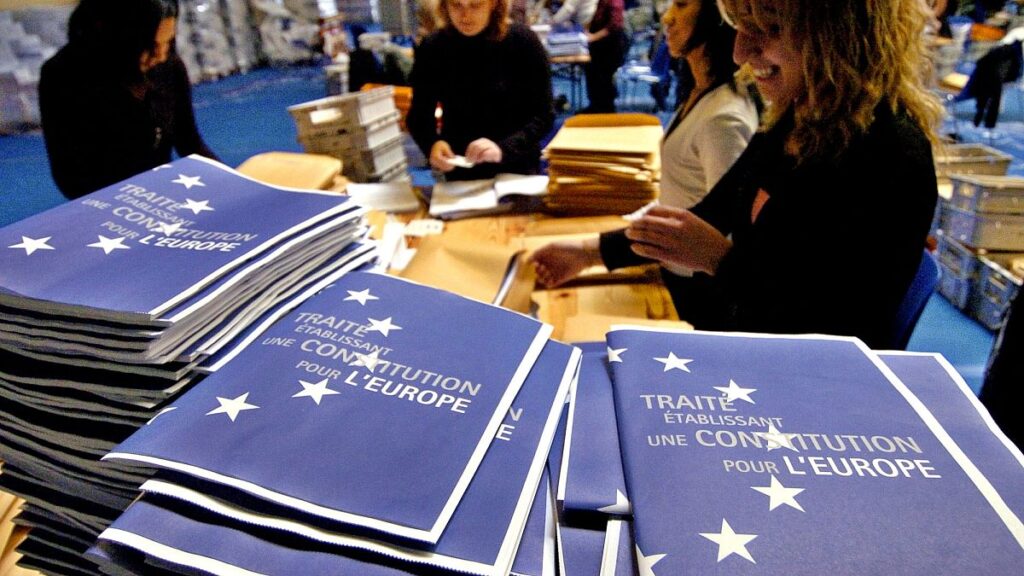The last European elections saw the highest turnout since 1994, thanks to a strong turnout of young voters. What are young people’s priorities ahead of this year’s elections and how can the EU engage them?
In 2019 at the age of 21, Kira Marie Peter-Hansen became the youngest MEP ever elected.
“I often hear that I don’t have enough experience. But I’m 25 now, and you have a number of MEPs who have been here longer than I was born. I think it’s completely crazy“, explains the MEP from the Greens/European Free Alliance group.
The Danish politician is one of 720 MEPs standing in the June elections. Currently, only six European parliamentarians are under 30 years old.
The youngest MEP
Kira Marie Peter-Hansen says she is used to facing criticism about her lack of experience.
“Of course it’s good to have experience and historical knowledge“, she concedes. “But one wonders: shouldn’t someone else have the chance to make a difference?”
The MEP insists that more and more parties are supporting young people entering politics: “The Green party has young candidates, but at the other end of the political spectrum, the far-right parties also have young politicians.”
Each member state sets the age at which candidates can apply to become MEPs.
In 16 countries, candidates must be at least 18 years old to run. In Bulgaria, Cyprus, Czech Republic, Estonia, Ireland, Lithuania, Latvia, Poland and Slovakia, applicants must be 21 years old.
In Romania, applicants must be 23 years old, while the threshold is 25 years old in Italy and Greece.
What do young Europeans want?
Despite the lack of young MEPs, the prospect of youth engagement for the 2024 elections seems promising.
The 2019 European elections saw the highest turnout since 1994 (50.66%), driven by an increase in youth participation.
Last year, the Young European Federalists (JEF) conducted a broad survey to determine the main concerns of young Europeans. More than 1.5 million Europeans aged 18 to 35 submitted their answers.
“Institutional reform, the economy and the fight against the climate crisis come first“, explains Christelle Savall, president of the JEF, to Euronews.
However, when it comes to more concrete policy proposals, some measures are more divisive, such as limiting air transport or European federalism.
Campaign for the right to vote at 16
In addition to determining the age of candidates, Member States determine the voting age of citizens for European Parliament elections.
The voting age is 16 in Austria, Germany, Malta and Belgium, 17 in Greece and 18 in the rest of Europe.
The European Youth Forum, one of the world’s largest platforms for youth organizations, has been fighting to lower the voting age to 16 for over a decade.

